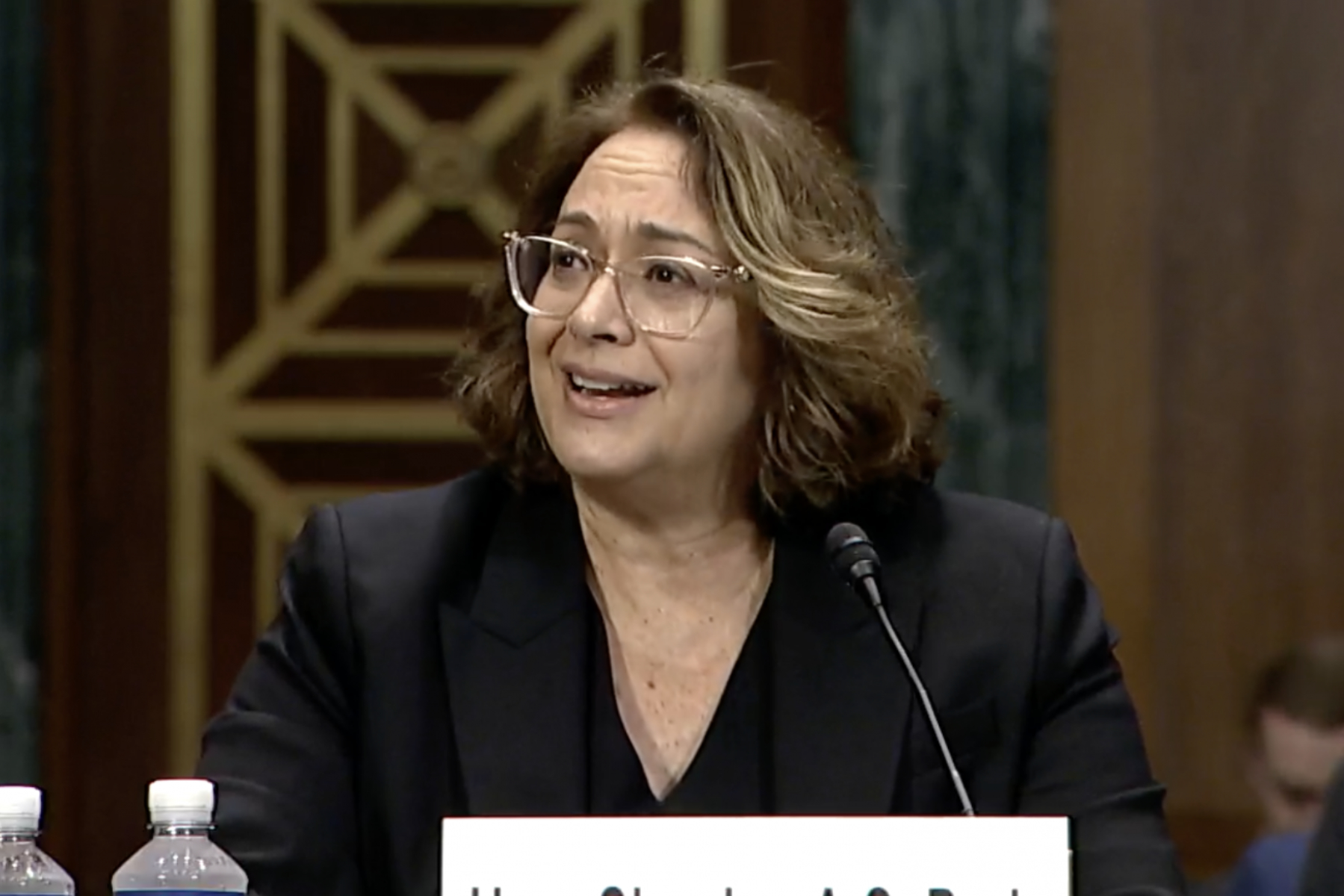At The 19th, we’re committed to publishing journalism that you can trust throughout the critical moments that shape our democracy and our lives. Show your support during our Fall Member Drive, and your donation will be matched. Double your gift today.
For the first time, a Native Hawaiian woman will serve a lifetime appointment as a federal judge in the United States. The U.S. Senate voted 53-45 on Thursday to confirm Hawaii state Judge Shanlyn A.S. Park to be a U.S. district judge for the District of Hawaii.
Park’s confirmation marks a historic step forward in representation for Native Hawaiian people and continues the efforts of President Joe Biden and Senate Democrats to expand the number of women in federal judge positions.
“It’s really exciting,” said Morgan Saunders, a staff attorney at the Native American Rights Fund. “She is a well respected member of the community. She’s very well qualified. So we look forward to her really being an excellent public servant for the people of Hawaii for years to come.”
Since December 2021, Park has served as a judge for the Oahu First Circuit, one of Hawaii’s four circuit courts. In her time there she has handled domestic violence cases and felony criminal matters. Prior to the state bench, she worked as a federal public defender in Hawaii, representing low-income clients.
In her ethnicity, gender and work experience, Park reflects a broader effort by the Biden administration over the last three years to create a federal judiciary that is more representative of the American public and the legal profession.
“I think it’s somewhat telling that she will be the first Native Hawaiian woman to ever serve as an Article III federal judge, but before her, there’s only ever been four — all men,” said Lena Zwarensteyn, the senior director of the fair courts program at the Leadership Conference on Civil and Human Rights.
Article III judges make up the federal judiciary and are nominated by the president and confirmed by the U.S. Senate to a lifetime tenure.
“For most of our nation’s history, being considered a ‘fair-minded, neutral judge,’ has meant being White and male and having a very specific type of legal background,” Zwarensteyn said.
On Tuesday, the Senate confirmed the 100th woman nominated by Biden to a lifetime federal judgeship. He is on pace to surpass a record set by President Barack Obama of the most women confirmed to the federal bench. In eight years, Obama appointed 136 women to these prestigious Article III positions. Biden’s 100th confirmation came a couple months shy of his three-year mark as president.
Biden and Senate Democrats have prioritized racial diversity in their nominees as well. A majority of the first 100 women Biden appointed come from historically underrepresented racial groups. Historically in the United States, Native Hawaiian, Native American, Pacific Islander and Asian-American people have been particularly marginalized.
Three Pacific Islander people, five Native American people and 70 Asian-American people have served lifetime judicial appointments in the 234 years since the federal judiciary was established.
Biden has been praised for increasing these numbers.
“President Biden, in his first term, has nominated 31 Asian American, Native Hawaiian, and Pacific Islanders to the federal judiciary, more than any previous administration,” Priya Purandare, executive director of the National Asian Pacific American Bar Association, said in a September statement applauding Park’s nomination. “President Biden’s confirmation rate of 22 members from the [Asian American, Native Hawaiian and Pacific Islanders] community matches President Obama’s total confirmed over two terms.”
For Indigenous people specifically, Saunders said their presence on the federal bench offers an important legal perspective for cases concerning Indian law, which regulates the legal relationships between Native American tribes and the United States.
In additional to racial diversity, the Biden administration also stands out for appointing judges from a greater variety of professional backgrounds. The president has confirmed the most federal judges to appellate courts who have previously worked as public defenders.
Most federal judges have worked as prosecutors or corporate lawyers prior to their confirmations. Legal advocates for judicial diversity say having more judges who have worked with people of color and those from different socioeconomic backgrounds will help make the judicial system more fair.
Jake Faleschini, the justice program director for the progressive legal advocacy organization Alliance for Justice, told The 19th that Democrats’ achievements on judicial diversity highlight the need for more “political will” to expand representation in multiple forms.
“It’s really exciting to see that we have so many folks from traditionally underrepresented backgrounds now eagerly serving in these positions,” Faleschini said. “They are proving to the country and to the world that they were always capable of doing it. They just weren’t given the opportunity.”
Still, more can be done to support potential Indigenous candidates for judicial nominations, Saunders of the Native American Rights Fund said. Appointing people like Park in federal positions is one key factor because it shows Indigenous law students and lawyers potential career paths for themselves. Intentional outreach to legal professionals in these communities is also important to expand the pool of people who seek out judicial roles, Saunders said.
“I want to point out that there has never been an Alaska Native federal judge. And there are large parts of the country where there are significant native populations, and where there are Indian reservations that still have not had a Native or Indigenous federal judge serve their district,” Saunders said. “Until every court serving Native American populations has that sort of representation, I don’t think our work is done.”







